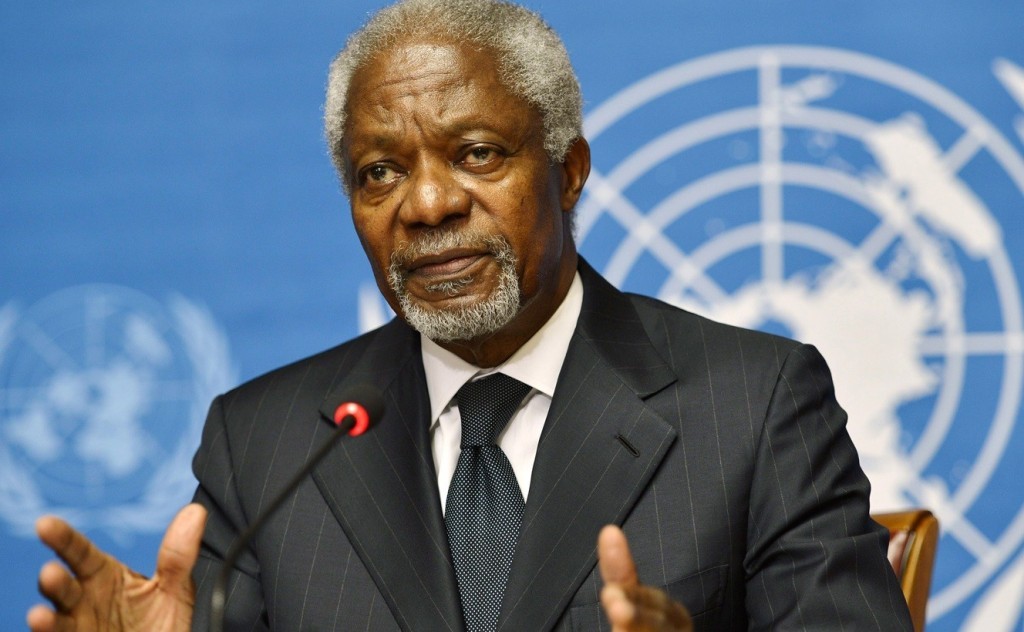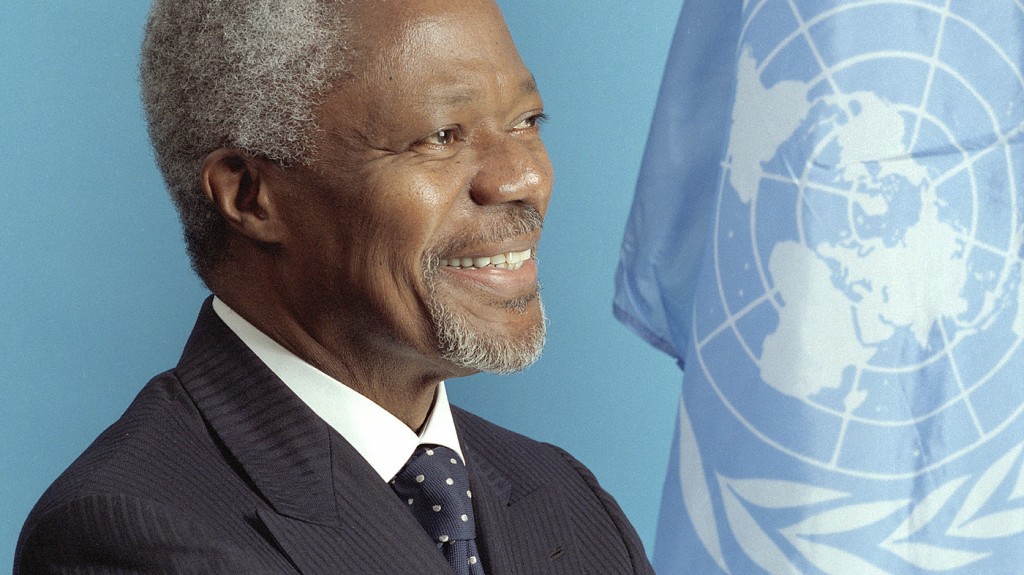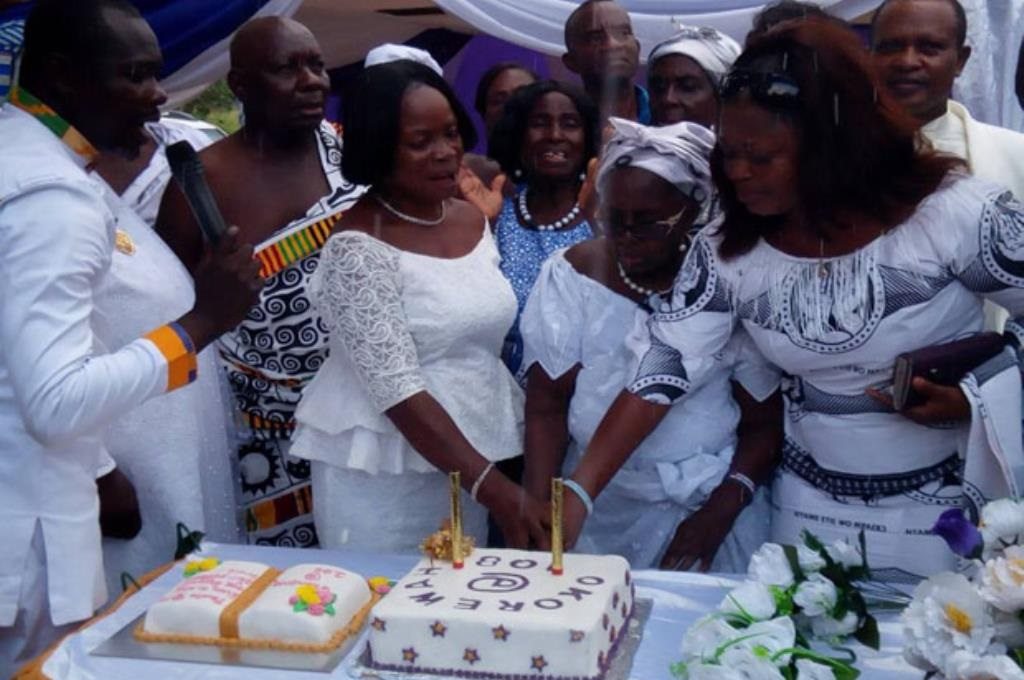Kofi was the first African UN Secretary and the first UN secretary to emerge from the ranks of United Nations staff. He is presently the Chancellor of the University of Ghana. Read on to discover more Interesting things you ought to know about this famous Ghanaian statesman.
Kofi Annan Biography and Education
Kofi Atta Annan was born with his twin sister Efua Atta to Victoria and Henry Reginald Annan in Kumasi, Ghana in 1938. His name Kofi literally means, “a male child born on a Friday”. His father was a chief and governor of the Ashanti province. Kofi was enrolled at the elite Mfantsipim School, a Methodist boarding school in 1954, and finished in 1957, the same year Ghana gained her independence from Britain; it was the first British African colony to do so. “It was an exciting period,” Annan once told The New York Times. “People of my generation, having seen the changes that took place in Ghana, grew up thinking all was possible.” Annan went on to pursue higher education. In 1958, he gained admission to study Economics at the Kumasi College of Science and Technology, now the Kwame Nkrumah University of Science and Technology. At the age of 20, he won a Ford Foundation scholarship for undergraduate studies at Macalester College in St. Paul, Minnesota, where he graduated with a bachelor’s degree in Economics in 1961. After that, he then undertook graduate studies in economics at the Institut Universitaire des Hautes Études Internationales in Geneva, Switzerland from 1961 to 1962. Following his graduate studies in Geneva, his U.S. mentors who were impressed with Annan’s academic achievements and political discretion, paved way for him to the World Health Organization (WHO), a branch of the United Nations, where he landed his first job. He served as an administrative officer and as budget officer in Geneva. There, he also served with the Office of the UN High Commissioner for Refugees. Since his target was to work with the UN proper, and seeing that he does not have all it takes yet, Annan enrolled for more studies at the Massachusetts Institute of Technology (MIT). A decade later, he became the Alfred P. Sloan fellow at the Massachusetts Institute of Technology (MIT). At the end of his fellowship in 1972, he was awarded a master of science degree in management. Annan had always intended returning to his native land after college and for this reason, he left the U.N. in 1974 to serve as managing director of the Ghana Tourist Development Company. However, his stay was disturbed and cut short by the unrest and numerous changes of government that occurred there during the 1970’s. After three years at WHO headquarters in Geneva, he was appointed to the Economic Commission for Africa based in Addis Ababa. Later, UN posts took him to Addis Ababa, Ethiopia, and NYC, New York.
At UN Headquarters in New York, Mr. Annan held senior positions in a diverse range of areas, including human resources management (1987-1990), budget and finance (1990-1992), and peacekeeping (March 1992-December 1996). Annan pursued a varied career in the UN system until 1993, when he was appointed Deputy Secretary-General for peacekeeping operations, a position he held until 1997 when he took over as the United Nations’ seventh Secretary-General. His first five-year term as the UN Secretary-General began on 1 January 1997 when he replaced outgoing secretary-general Boutros Boutros-Ghali of Egypt. As Secretary-General, Mr. Annan has used his good office in several delicate political situations, including an attempt in 1998 to gain Iraq’s compliance with Security Council resolutions, as well as a mission that year to promote the transition to civilian rule in Nigeria. In 1999, he helped to resolve the stalemate between Libya and the Security Council and to forge an international response to violence in East Timor. That same year, he launched the “Global Compact” campaign in 1999, which is the world’s biggest initiative for promoting corporate social responsibility. In 2001, which was the Nobel Committee centennial year, Kofi Annan was awarded the Peace Prize for having revitalized the UN and for having given priority to human rights. The choice showed the Committee’s traditional support for organized cooperation between states. He also received numerous honorary degrees and many other national and international prizes, medals, and honors. At his initiative, the Millennium Development Goals were introduced in 2000, creating for the first time a global blueprint to end poverty. That same year, he certified Israel’s withdrawal from Lebanon. Since the renewed outbreak of violence in the Middle East in September 2000, he has worked to encourage Israelis and Palestinians to resolve their differences through negotiations based on Security Council resolutions and the principle of “land for peace”. Mr. Annan also oversaw the strengthening of UN peacekeeping to cope with a rapid rise in the number of operations and the establishment of two new intergovernmental bodies: the Peacebuilding Commission and the Human Rights Council; this was in 2005. Kofi Annan continues to use his experience to mediate and resolve conflicts. In Kenya, in early 2008, he led the African Union’s Panel of Eminent African Personalities to mediate a peaceful resolution to the post-election violence. Most recently, he served as the UN/Arab League Joint Special Envoy on the Syrian crisis, between February and August 2012. He resigned in August 2012 owing to lack of any progress due to intransigence on the part of all the concerned parties. The Secretary-General has also taken a leading role in mobilizing the international community in the battle against HIV/AIDS, and more recently, against the global terrorist threat. Since he left the United Nations, he has continued to advocate for better policies to meet the needs of the poorest and most vulnerable, particularly in Africa. Kofi Annan has been a member of The Elders, an independent group of global leaders who work together for peace and human rights since its inception in 2007, succeeding Desmond Tutu as the Chairman in May 2013. Archbishop Desmond Tutu served for six years as Chair before stepping down in May 2013; he remains an Honorary Elder. Between February and August 2012, Kofi Annan temporarily recused himself as a member of The Elders during his UN and Arab League assignment as Joint Special Envoy on the Syrian crisis. The man is currently the Chancellor of the University of Ghana and has held a number of positions at Universities around the world. Also See: 100 Most Influential Ghanaians [The Final List]
His Personal Life
Annan was previously married to Titi Alakija, a Nigerian woman whom he divorced in the 1970’s. They have two children, Ama and Kojo. He is currently married to Nane Lagergren, a Swedish lawyer at the UN, as well as a painter who has a great interest in understanding the work of the United Nations in the field. In 1991, he lost his twin sister, Efua Atta. The two of them shared the middle name “Atta,” meaning “twin” in Akan. His former colleagues praise him for his thoughtfulness, his intelligent subtlety, and gentility. A very charismatic personality, Kofi Annan left a strong imprint behind him. He embarked on initiatives that revivified the organization that was almost completely drowned in the quagmire of bureaucracy. The Secretary-General is fluent in English, French and several African languages. In 2007, he established the Kofi Annan Foundation, which works to promote better global governance and strengthen the capacities of people and countries to achieve a fairer, more secure world. His memoir “Interventions: A Life in War and Peace”, written with Nader Mousavizadeh was published in 2012. 2. “Knowledge is power. Information is liberating. Education is the premise of progress, in every society, in every family.” 3. “More countries have understood that women’s equality is a prerequisite for development.” 4. “To live is to choose. But to choose well, you must know who you are and what you stand for, where you want to go and why you want to get there.” 5. “Business, labor and civil society organizations have skills and resources that are vital in helping to build a more robust global community.” 6. “We need to keep hope alive and strive to do better.” 7. “There is no development strategy more beneficial to society as a whole – women and men alike – than the one which involves women as central players.” 8. “It has been said that arguing against globalization is like arguing against the laws of gravity.” 9. “If one is going to err, one should err on the side of liberty and freedom.” 10. “The Lord had the wonderful advantage of being able to work alone.” 11. “The World is not ours to keep. We hold it in trust for future generations.”




